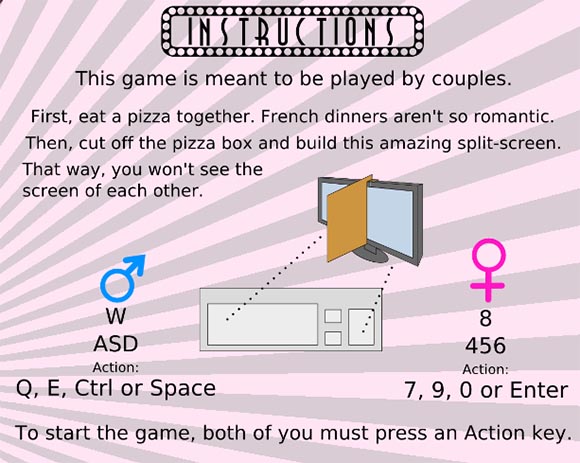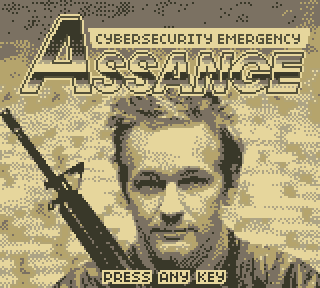It’s hard to miss the recent discussion about Penny Arcade’s Dickwolves comic and the Dickwolves T-Shirt. I already wrote my share of critical posts on Penny Arcade. My opinion on Penny Arcade can be considered shaky.
Judging from the overwhelming one-sidedness of the arguments I hear from the people I follow on Twitter, the following may be a bad idea. However, I found myself on the PA side of the issue. I understand if you want to unfollow me. Goodbye.
It’s not even that I find the comic funny. I completely agree it’s a pretty weak comic. I agree that using rape in it was bad taste and probably unnecessary. PA response was ill-chosen as well and the Dickwolves thing they had going there is simply a horrible idea.
My reason for siding with PA has nothing to do with the actual content. It has to do with the arguments against them and the consequences that conceding to those arguments would mean for all of us, especially for video games. As far as I understand, there are two reasons for why the comic and PAs reason are considered problematic. One is the fact that they trigger certain people. The other is that they contribute to “Rape Culture”. This article explains both in greater detail and probably much better than I ever could.
I can’t comment too much on the trigger argument. It is a phenomenon I have no experience with. I find it odd that this comes up with rape victims but somehow isn’t a public issue with war veterans or other kinds of post traumatic stress disorder. On the other hand there may be a whole world of similar issues I’m not aware of, just waiting for the right PA strip to turn into a shitstorm. If it is a real problem we need to talk about who’s responsibility it is to prevent triggering and how.
My problem is the idea that the comic somehow trivializes or even endorses rape. This argument comes in two forms. The “strong” form is what PA was talking about in their first response. There seems to be consensus is that nobody will turn into a rapist just by reading that comic. I’m glad we at least agree on that. It may seem obvious but judging on how this discussion goes, we might have been just as well arguing this. It wouldn’t be the first time.
The real issue seems to be the “weak” form of this argument. It’s that this joke contributes to “Rape Culture” – a large body of little anecdotes and stories that in total, on a long term make rape more acceptable in our culture.
I find both version of that argument, the “weak” and the “strong” one equally problematic. The reason is because they perfectly mirror the arguments brought up against violence in games. I live in Germany, the country with one of the most severe censorship systems on video game content. There is a wide spectrum of various of reasons that experts state for why games have a destructive effect on people, especially youth. The simple version is a direct linkage of video games to killing sprees also know as “the game make me do it” or “murder-simulator”. Believe it or not, while the PA discussion apparently moved already past this “strong” variant of the argument, it is still seriously being discussed in my country. Many people believe that games should be completely forbidden because of this.
The “weak” variant is something I hear being brought up especially by people with a background in education. They claim that playing many violent games will have negative effects on players in the long term. They will become emotionally indifferent to violence and much less restricted at using it to solve their problems in real life. It is a much more difficult argument to dismiss. It’s hard to imagine somebody engrossing themselves in video game violence on a long term and not being affected by it.
Sure, there might be some kind of long-term effect of playing video games. But there are simple, hard facts that prove without a doubt that the consequences are actually not nearly as serious as the argument might suggest. If games really had this negative effect on youth, we would see an increase in violent crime among young people, especially those playing those games. At least in Germany, the opposite is true. The crime rate for young people and in general is decreasing steadily every year. The existing youth violence is overwhelmingly linked to poor education (a much more expensive topic that politicians like to avoid). Gamers have generally an over-average education and have a much lower likelihood to commit violent acts. During conscription (still obligatory in Germany) they prefer community service over military service. The lack of statistic evidence may be the only reason why we still can play some video games in Germany today.
On a side note, I personally think there is a good simple explanation for this apparent contradiction. One that requires creating a more sophisticated model of human psyche than “Monkey see, monkey do.” I believe that enjoying violent content requires the audience to actually strengthen and enforce the separation between fiction and real-life. We can only commit violent acts in games if we can be sure that they are actually not violent acts but the make-believe violent acts. This means that players can retain and even strengthen their rejection of real violence in spite of constantly engaging make-believe violence. I noticed that video game players are capable to do things in video games they would be absolutely terrified of if they encountered them in real-life. This separation is something that is glossed over or misunderstood by critics.
I do believe that this is also the reason why PA and their audience are able to tolerate rape jokes. The joke actually depends on everybody’s mutual understanding that rape is indeed one of the most horrible things that can happen to a person. This explains why questioning this understanding is met with ridicule.
This is also the reason why I find the “Rape Culture” argument deeply problematic. Taking this argument seriously would have grave consequences on our media. If true, the argument could and should be used to easily justify heavy censorship to prevent “rape culture”, “murder culture”, “violence culture”, “racism culture”, “bad language culture” – just about any kind of content that even vaguely references any social issues. At first it would seem like a quick and easy solution to get rid of the “filth”. But on a long term, one would notice a disturbing and even more devastating absence of works like The Bluest Eye or A Clockwork Orange.
This may sound like grim scenario but please consider that this is exactly how gaming culture looks in Germany right now. The process has moved into a second-order problem where the censorship occurs a priori and voluntarily. Game publishers cut out or modify content out for their games to have any chances of appearing on the market. I find myself in a position where I need to teach about the history of video games in a land where the games like Doom and Wolfenstein simply don’t exist. Where the Lucasarts Indiana Jones adventure has black squares instead of Swastikas.
But what do I know, I never been raped and I’m living in a different country. Different cultures have different perspectives. Rape seems to be a much greater issue in the United States than in Europe. Japan’s take on the subject is so disturbing one can only hope that something important gets lost in translation. My personal takeaway is that free speech is not the pleasant, rosy thing it is often idealized into. It is actually quite ugly. More often than not it means that idiots can and will hurt a lot of people and that lies can spread. But this is something we must endure. Because once everybody has been silenced, you will even miss even the lies and the idiots.











